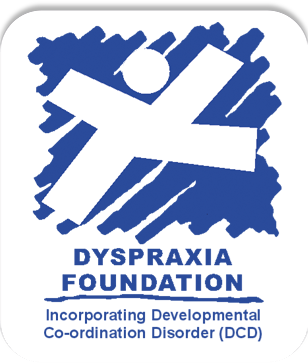Useful Videos & Articles

Demand avoidance is a very real challenge that many parents face with their neurospicy children. Whether it is asking them to put their shoes on, brush their teeth or sit down to eat their dinner, the reactions can be huge and usually completely disproportionate to the request itself.
I have been going into schools for nearly 15 years and can still probably count on only one hand those that have really stood out as being fantastic at fully understanding and supporting neurodivergence and behaviour. Pretty shocking really! This is an open letter to the not quite so fantastic schools...
A “Feelings Scale” can be a really simple but highly useful visual tool for helping both a child and those working with them to understand their regulation needs and know how to manage them. It can be stuck up on the fridge at home or on the wall at school.
Research shows that the frontal lobe, the part of the brain responsible for decision-making, impulse control and managing emotions, develops much slower in children with ADHD and often is actually smaller in an ADHD brain than in the brain of a neurotypical child.
A lot of you may not know that as well as being a children’s OT, I am also mummy to two neurodivergent children. This helps massively with informing my practice when working with neurodivergent kids and their families and I really believe has made me better at my job.
Living with neurodivergence is wonderful, exhausting, frustrating, difficult and sometimes it feels never-ending. Often I feel like I am walking on egg shells, not knowing whether we are going to have a good day or a bad day and I spend a huge amount of time defending and advocating for my children, who often can’t advocate for themselves.
I have written the following article from my perspective as a parent, standing in solidarity with the other parents who are on this rollercoaster ride!
Introducing a special meditation series tailored for children facing fear, anxiety, and sensory challenges, featuring easy-to-use exercises like Tummy Breaths, Colour Meditation, and Seaside Visualisation. These meditations are designed to guide kids towards tranquility and self-awareness, available for use at home or school.
Discover the fascinating world of interoception, our body's unique ability to understand and respond to its internal state for optimal health and comfort. Learn how this 'eighth sense' functions like a network of internal messengers, guiding children to recognize and react to hunger, thirst, temperature, and emotions. However, interpreting these signals can be challenging for some children, leading to difficulty in managing basic needs and emotions. Find out how to nurture this skill in your child, transforming them into superheroes of self-awareness and emotional regulation. For more insights and guidance on interoception and child development, explore the resources and expert advice available at TherapySPOT.
As Therapists, we often use the Zones of Regulation to help children cope with their feelings and body sensations. Here is a starter pack for you to use with your child at home.
Imagine if you woke up tomorrow and all sounds, smells, tastes, sights and touch sensations were amplified..how might you feel about the world around you and react to the people in it? This article paints very simply what children with sensory processing difficulties go through on a daily basis.
This is a really interesting article. Mindfulness is the practice of being aware of our thoughts, feelings and bodily sensations while not judging them. It therefore makes a lot of sense to use this practice with children who are having difficulty understanding what’s going on inside them.
Some children need that little bit of help to calm them down and keep them regulated so that they can engage, focus, learn and play. Massage can be a quick and easy way to bring children down if they are running too high. Deep pressure is calming for the brain and can help children more easily make sense of their surroundings and respond appropriately to stimuli. Try incorporating it into your child’s normal routine e.g. as part of getting them dressed, while playing with them on the floor or before bed.
This easy technique only takes a few minutes and can be really effective for children with tactile hyper sensitivity and for those who seek extra input.
Check out our new video on Exercises for Asymmetric Tonic Neck Reflex (ATNR).


























